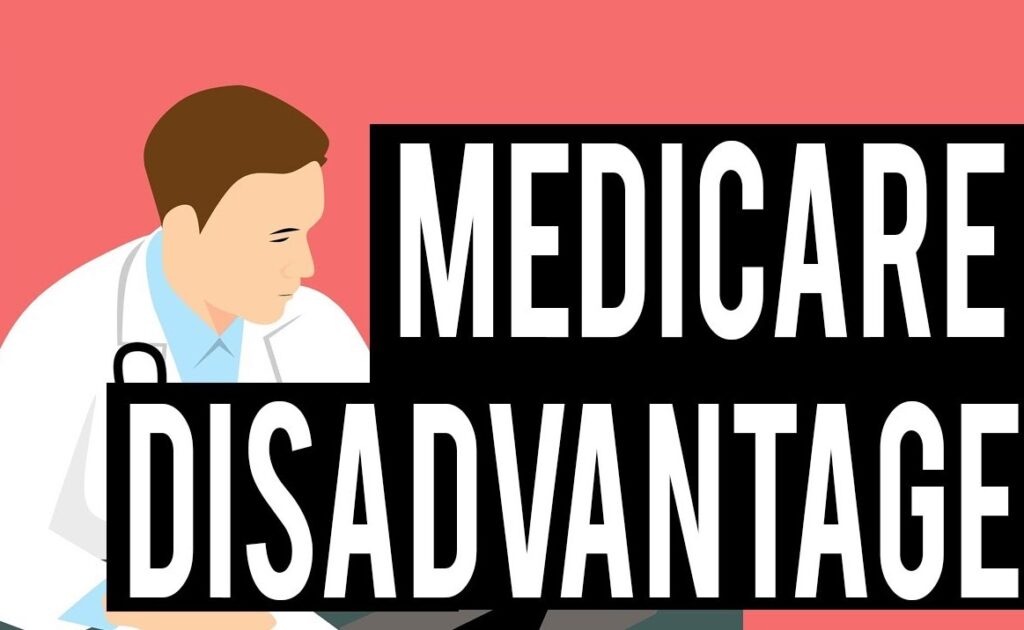If you are in the market for Medicare, note that Medicare Advantage, aka Medicare Part C, is not Medicare—the same lousy private health insurance profits from denying you coverage.
Medicare Advantage scams.
Podcasts (Video — Audio)
We delve into a critical discussion highlighting significant Medicare Advantage program concerns. This discussion, particularly relevant in the context of the U.S. healthcare system, raises profound questions about the intersection of healthcare, profit, and public welfare.
The Core Critique of Medicare Advantage
Here is a stark warning against the Medicare Advantage (MA) program: it must be called “Medicare Disadvantage.” MA is nothing more than your standard for-profit lousy private health insurance paid for by taxpayer dollars. It inherently prioritizes profit over patient care. This claim is not without foundation. The privatization of healthcare services, especially in a sector as sensitive as that of the elderly and disabled, often leads to a conflict between profit motives and the delivery of comprehensive healthcare. Medicare Advantage plans relegate patient care to a secondary priority by prioritizing shareholders’ and executives’ enrichment. This reflects a broader debate on the role of privatization in public welfare services.
Diane Archer’s Advocacy for Traditional Medicare
Diane Archer’s perspective brings to the table the credibility of an expert in the field. Archer, who leads Just Care USA, advocates for traditional Medicare over Medicare Advantage. Her argument hinges on the assurance of better coverage for both current and unforeseeable health needs under traditional Medicare. This recommendation underscores a fundamental principle in healthcare: the need for reliability and comprehensiveness of coverage, particularly for the most vulnerable populations.
The Seven Questions: A Toolkit for Empowerment
Seven critical questions are presented to empower individuals to make informed decisions about Medicare. These questions serve as a tool for demystifying the complexities of Medicare options. They address the differences between traditional Medicare and Medicare Advantage, challenge the reliability of advice from insurance agents, and question the efficacy of government rating systems. This approach aligns with a broader progressive aim to equip individuals with the knowledge and tools necessary to navigate often opaque and confusing systems.
The Role of Government in Regulating Medicare Advantage
The government’s capacity to protect beneficiaries from the malpractices of Medicare Advantage plans is limited. This observation raises critical questions about regulatory frameworks and their effectiveness in safeguarding public interest, especially in sectors as crucial as healthcare.
A Call to Action: Advocating for Traditional Medicare
One should avoid Medicare Advantage plans and opt for traditional Medicare, which is not just a critique but a call to action. If you have already opted into the Medicare Advantage and is currently fairly healthy, transitioning back to traditional Medicare is still possible. If you wait till you get sick, it may become cost-prohibitive to get the real thing.
Conclusion
The video presents a compelling argument against Medicare Advantage plans, grounded in concerns about prioritizing profit over patient care. It offers a critical perspective on the role of privatization in public welfare, advocates for the empowerment of individuals through information, questions the adequacy of government oversight and calls for a collective movement towards a more equitable healthcare system. As we navigate the complexities of healthcare in the United States, discussions like these are vital in shaping a more informed and engaged public discourse. Please listen to the entire video.
Viewers are encouraged to subscribe and join the conversation for more insightful commentary and to support progressive messages. Together, we can populate the internet with progressive messages that represent the true aspirations of most Americans.

